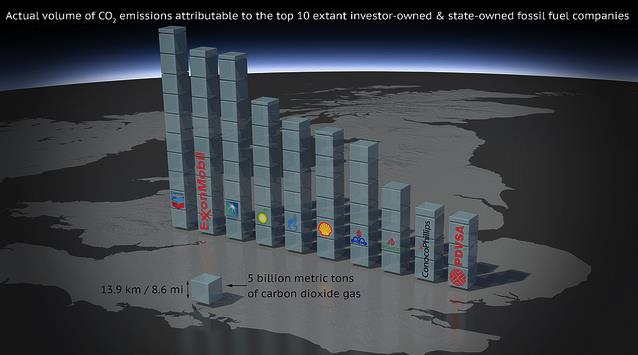It was welcome news last week that social media giant Facebook is “likely” to cease its membership in the American Legislative Exchange Council (ALEC) this year, following the lead of Microsoft and Google to become, as The Guardian reported, “the latest tech company to end its support for a controversial rightwing lobby group that works against climate change legislation.” Yelp and Yahoo joined the abandon ALEC movement last week too. Our friends at Forecast the Facts have been turning up the heat on many of these companies to ‘walk their talk.’
UCS has targeted Facebook because the company was in the awkward position of advocating for more of our electricity to come from renewable sources while simultaneously funding ALEC, a group that has attacked clean energy policies in more than a dozen states—the very policies driving the prolific growth of wind and solar power that Facebook claims to support. UCS members sent thousands of emails to Facebook earlier this year calling on the company them to sever their ties with ALEC.
Apparently, Facebook and other Internet-giant members tried to push for change from within ALEC at its most recent meeting, making a powerful case for the cost-effectiveness of renewable energy, based on their own business experience of investing in wind and solar power to offset energy use at data centers. But the case was a tough sell considering that ALEC counts Exxon, Koch Industries and other major fossil-fuel companies among its more than 300 leading corporate members.
Creating doubt instead of finding climate solutions
When any company seeks to deceive the public about the problems their products cause, they need to be held accountable. Internal corporate memos show that, for years, fossil fuel companies knew about the climate-warming and other effects of burning oil and coal, but conspired together to deceive and mislead the public. Exxon, for example, admits in its internal memos that carbon pollution is very dangerous to the planet, and yet it paid some of the same PR people the tobacco companies used to create doubt in our minds about the settled science of global warming.
Recent research has indicated that two-thirds of all industrial carbon dioxide and methane released to the atmosphere can be traced to fossil fuel and cement production by just 90 entities, 50 of which are investor owned companies, such as Chevron, Exxon-Mobil BP, Shell, and Peabody Energy.
The fact that these major carbon producers are in the business of extracting fossil fuels does not, in and of itself, make them the bad guys. But we need to hold them to account for how they reacted to the evidence that burning fossil fuels was causing Earth’s temperature to warm and glaciers to melt, exposing us—their consumers—to a litany of future of dangerous storms, drought, wildfires, and flooding. Did they come clean about the damage they knew they were causing or seek to diversify or find ways to make their product less damaging? No. They used organizations like the Heartland Institute and ALEC to deny the evidence, sow doubt and confusion, and block efforts to reduce dependence on fossil fuels.
ExxonMobil and Peabody Energy currently sit on ALEC’s Private Enterprise Council and, in recent years, they have joined BP, Chevron, and Shell as members of ALEC’s Energy, Environment, and Agriculture Task Force. This task force is the source of ALEC’s “model” bills, legislation to repeal state renewable energy standards and roll back regional climate initiatives such as the Regional Greenhouse Gas Initiative (among other things).
Industry associations like ALEC have become attractive vehicles for corporations to covertly foster unpopular actions that might hurt their ‘brand.’ Chevron, for example, simultaneously runs their ‘we agree’ ad campaign, publicly promoting their solutions orientation to environmental problems while funding ALEC and other associations that block progress on clean energy and climate.
Google Chairman Eric Schmidt answered a caller’s question on NPR’s Diane Rehm show, saying, “the facts of climate change are not in question anymore. Everyone understands climate change is occurring. And the people who oppose it are really hurting our children and our grandchildren and making the world a much worse place. And so we should not be aligned with such people. They’re just literally lying.”
More than 80 corporations and 400 state legislators have dropped their support for ALEC amid increased public scrutiny of the group’s role in spreading disinformation about renewable energy, climate change, and other pressing issues. One of those companies is a major carbon producer: ConocoPhillips was involved in ALEC, but quit.
This country needs a robust and honest debate on the best ways to address climate change — how to reduce emissions causing the problems and how to prepare for the impacts we can no longer avoid. Efforts to deny, delay, and deceive have gone on long enough. It’s time for the major coal, oil, and gas companies to follow the lead of Conoco and Facebook, abandoning ALEC’s obstructionist tactics on climate and clean energy.


